
Plundered Oceans
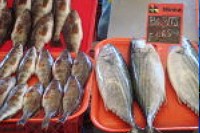 World per capita fish supply reached a new record high of 20 kg in 2014. About half of this was due to aquaculture according to estimates published by the Food and Agriculture Organization of the UN (FAO) in its report on the State of world fisheries and aquaculture 2016.
World per capita fish supply reached a new record high of 20 kg in 2014. About half of this was due to aquaculture according to estimates published by the Food and Agriculture Organization of the UN (FAO) in its report on the State of world fisheries and aquaculture 2016.
Although annual per capita consumption of fish has grown steadily in developing regions (from 5.2 kg in 1961 to 18.8 kg in 2013) and in low income food-deficit countries (LIFDCs) (from 3.5 to 7.6 kg), it is still considerably lower than that in more developed regions, even though the gap is narrowing. The may be under-estimates, because artisanal and subsistence fisheries are very poorly covered in national statistical systems and thus also by FAO.
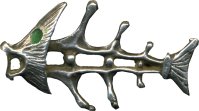 In its most general form, overfishing means that humans take out more fish and other organisms from the oceans (and freshwaters) than the affected ecosystems can regenerate. As a result, the more one fishes, the less can be harvested. Persistent overfishing may lead to the disappearance (entirely or at least commercially) of a formerly abundant resource.
In its most general form, overfishing means that humans take out more fish and other organisms from the oceans (and freshwaters) than the affected ecosystems can regenerate. As a result, the more one fishes, the less can be harvested. Persistent overfishing may lead to the disappearance (entirely or at least commercially) of a formerly abundant resource.
 Definition:
Definition:
Illegal, unreported and unregulated (IUU) fishing are forms of fishing without a valid licence and without reporting catches in national or international waters under the aegis of a Regional Fisheries Management Organisation (RFMO). Unregulated fishing mostly refers to vessels without nationality or flying a flag of a country that is not party to relevant RFMO.
Definition:
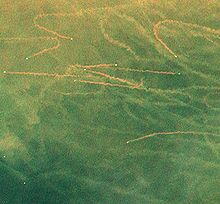 Bottom trawling consists of towing a trawl net along the sea floor. It is a commercial fishing technique that can currently be done to more than 800m depth. Heavy nets and gear are pulled along the sea floor sweeping-up sediments and anything living there. It is a destructive, non-selective fishing method, taking anything on its pathway into the net.
Bottom trawling consists of towing a trawl net along the sea floor. It is a commercial fishing technique that can currently be done to more than 800m depth. Heavy nets and gear are pulled along the sea floor sweeping-up sediments and anything living there. It is a destructive, non-selective fishing method, taking anything on its pathway into the net.
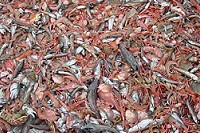 Bycatch – a form of mass destruction
Bycatch – a form of mass destruction
Definition:
Bycatch are those organisms caught accidentally while one or more other species are targeted by the fishery. All fisheries have some unintended bycatch. This can be marginal when fishing with highly selective gear or very substantial, when gears used indiscriminately catch anything in their pathway.
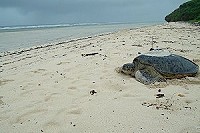 Definition:
Definition:
A marine protected area is essentially a space in the ocean where human activities are more strictly regulated than the surrounding waters - similar to parks on land. They can serve a variety of ecological and social purposes. The IUCN definition is one of several formal ways to define the concept broadly: “A clearly defined geographical space, recognised, dedicated and managed, through legal or other effective means, to achieve the long-term conservation of nature with associated ecosystem services and cultural values”.
Definition:
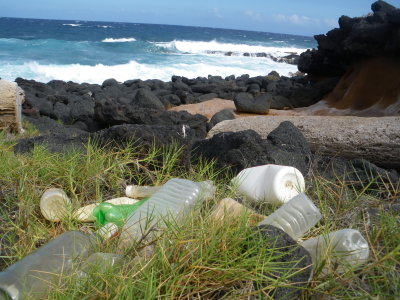 The term “Marine Litter” has been introduced to describe discarded, disposed of, or abandoned man-made objects present in the marine and coastal environment. It consists of articles that have been made or used by people and, subsequently, deliberately discarded or accidentally lost.
The term “Marine Litter” has been introduced to describe discarded, disposed of, or abandoned man-made objects present in the marine and coastal environment. It consists of articles that have been made or used by people and, subsequently, deliberately discarded or accidentally lost.
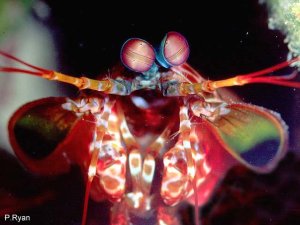 Definition:
Definition:
Biodiversity is the variety of all life forms, the different plants and animals and micro-organisms, the genes they contain and the ecosystems of which they form part.
Marine biodiversity is the variety of life forms in the oceans and their ecosystems. High diversity is desirable.
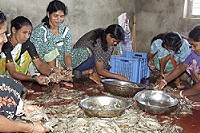 Definition:
Definition:
The cultivation of freshwater or marine organisms, such as fish, shrimps, oysters or algae is called aquaculture or sometimes also aqua-farming. Most species are not domesticated and need seeds from the wild, but part of their life cycle is controlled.
The official FAO definition of aquaculture for statistical purposes can be found here.







